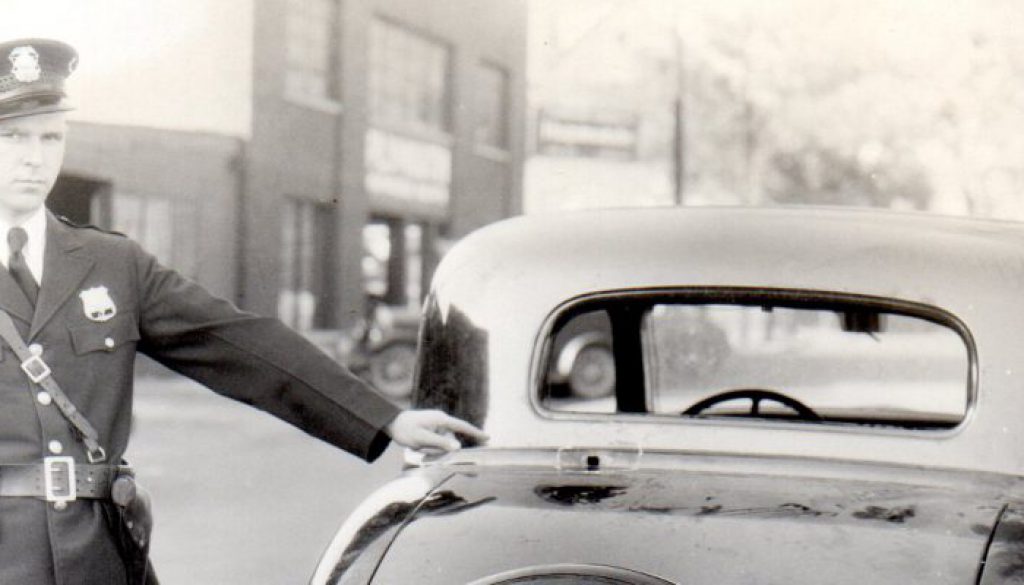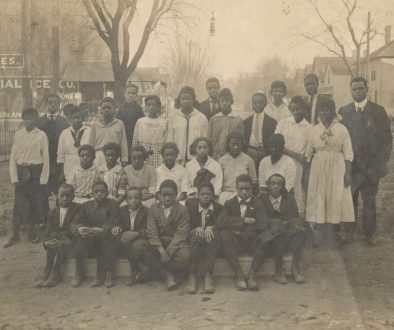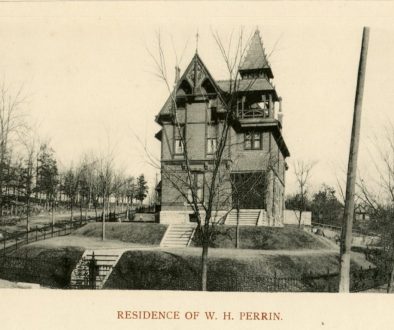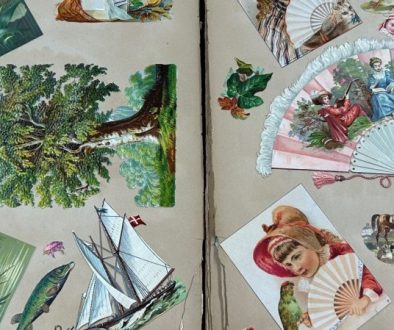Interview with Policeman Paul Klinker
“This is 1933; there’s no place to work. And this job is a hazardous job, but someone got to do it.”
Sometime in the late 1970s, in an oral history interview Paul Klinker recounted his experiences as a Lafayette policeman during the Great Depression of the 1930s. This excerpt recalls how he became a policeman, his opinion on crime in Lafayette and a 1933 confrontation with outlaws in downtown Lafayette.
Paul Klinker: “… We had about 200 machinists working at the Monon Shops when the Depression came; they laid everybody off indefinitely, except about 20 men. And then they shut the big shop down. And then they had these 20 men working three eight-hour shifts doing small regular work. And that’s what went on during the Depression. And I didn’t have no more job than nothing! No use looking, you couldn’t find a job.”
“So I finally got the inside track and I found out that there was going to be a vacancy in the police department. The only way you could get a job, if you knew there was going to be a vacancy. And the reason I knew there was going to be a vacancy; this guy was going to be fired…. So I went to the mayor, to all the members of the police board.”
“I had a very good friend in the police board, who was the yardmaster at (the) railroad. I had another good friend who had been my foreman, who was a very good friend of the mayor…. You have to know something and you have to know somebody to get those kinds of jobs. By knowing the right people and what was going to happen, then I got this job.”
“So, did I have a job during the Depression? I did. I had one of the best (jobs) because I wasn’t going to get laid off as a policeman. You got to have policemen. So, I worked as a policeman, twelve hours a day, seven days a week, no days off, $117 a month.”
Paul Klinker: “… We had a lot of burglaries. People when they haven’t got anything; and you’re getting hungry… you’re going to steal. So we had all those problems…. And there was a lot of armed robberies, all kinds of armed robberies. We’d go out in the car and start cruising around and think everything was hunky-dory and you would get a call and someone had held-up a filling station or someone has held-up a grocery store. All that stuff going on all the time.”
“And we didn’t work eight hours a day we worked twelve (hours). And we didn’t have any days off. We worked twelve hours, and I worked nights all the time. Worked twelve hours a night, every night, seven nights a week. The only time we got any time off was in the summer when we got our vacation, and we got one week.”
Paul Klinker: “… We had this happen on June 16, 1933. And I was driving the Captain out of police headquarters, and I only made calls that were answered out of the office. And this was in the afternoon. Oh, around four o’clock. And when we worked days, we got to go home a little earlier. We didn’t work the full twelve hours. We worked about ten (hours). So generally about four o’clock we got off work, but I went out on a call….”
“I ran an ambulance over to 2nd and South Street to pick up whoever was hurt, and they ran another car over there to investigate the accident. I just ran the ambulance. I drove out of headquarters. And when we got over there, the person who was injured, we were told was taken over in a car to the Life Building to the doctor. So I took the ambulance back to the garage. Then I went back to the office, and then we caught a call to come over to the Life Building. Someone over there that (had) stopped at the hospital out on North River Road, and they had sent them on in. And this man wanted to be treated for a gunshot wound. And he was over in Dr. Loop’s office at the Life Building.”
“ And my Captain said: ‘You just go over and see what it is.’ So the newspaper reporter went with me. His name was Darrell Harper. He went along, and I thought it was the person who got hurt that I had gone with the ambulance. It wasn’t at all; it was this other man that was there with the gunshot wound from the information we had from the hospital out there. So Harper and I went over there.”
“There was a Ford parked north on 3rd Street. The back end was parked even with the corner of the Life Building at 3rd and Main Streets. And in the car was about an 18 year old girl, and I started to see who she was. She didn’t have many answers. And I looked up in back where she was sitting and there must have been ten to fifteen hotel keys – where people had stayed at cheap hotels, where they have a key on a paddle, like room 241. These people had never turned these keys in. That made me wonder. I lifted the trunk lid and looked in the trunk and there was a shotgun, a rifle, and a couple of boxes of shells. So I shut that down, and I told Harper, who was with me, that ‘you better call over to the office and have them send someone over here. Something pretty much (was) wrong here.’ ”
“ So then the Captain and a Detective, his name was Goldsberry, they came over there and I do what my Captain tells me to do and he says: ‘ You stay here with the girl and the car. And Goldy and I will go upstairs and check these guys out.’ They went upstairs.”
“The next thing I knew, there was some shooting going on in the front of the Life Building, and I was around the side here by this car. So I don’t know what was going on. I’ll just get the car between me and whoever was doing the shooting. So I got the car between me and here comes this guy around the corner of the Life Building. And he had a revolver in his hand and he went down along the Life Building. And I went back along the car. And then his partner came out, and I didn’t –don’t- know what (was) going on around in front. And then his partner came out. And that’s when some more shooting was going on in front of the Life Building. And those guys got me in between them – the guy that I had seen walking down the sidewalk and the guy coming out there.”
“ And I got my back end towards Main Street and this guy cut(s) loose. And I got hurt. I got shot. The bullet hit me in the rear and lodged behind the pelvic bone. And it threw me into the street. Another bullet hit me below the shoulder and it went through and came out just below the collarbone. So I’m hurt pretty bad.”
“In the mean time, a lot of things went on there around front. One policeman was shot down; his name was Leslie Wilson. Then my very best friend, Jimmy MacDonald, was the one who came along and saved me.”
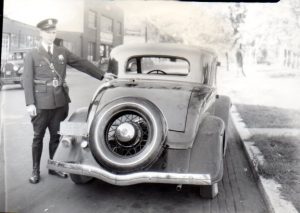
“He was shooting around the corner of the building and he had his left leg sticking out there and them guys went and shot his leg in two – just below the knee and ankle…. Then Jim was down, but he’s still firing. I’m hurt too bad.”
“So then, I was helped up by someone, (and) put in an automobile and taken to the hospital. Then they brought in Wesley Wilson and then Jim. The three of us are all hurt. The three of us, policemen, were hurt. The other two guys were apprehended.”
“I was a little ahead of my story because I shot over the top of the car and I shot that guy before I was hurt. So anyway I came to the hospital very badly hurt; they didn’t think I would make it. But I did. Jimmy MacDonald was brought in, he and I got well. But Leslie Wilson, he died. One of the bandits died; I think the one I shot. The other bandit was sent to the penitentiary….”
Paul Klinker: “I remember a lady came to see me at the hospital and she said: ’You’re surely not going to go back, and be a policeman?” I said: ‘I surely am and when I get well, I’m going to go back and be a policeman. What else am I going to do? This is 1933; there’s no place to work. And this job is a hazardous job, but someone got to do it. And if the good Lord makes me well, I’m going to go back and do it some more.’ ”

